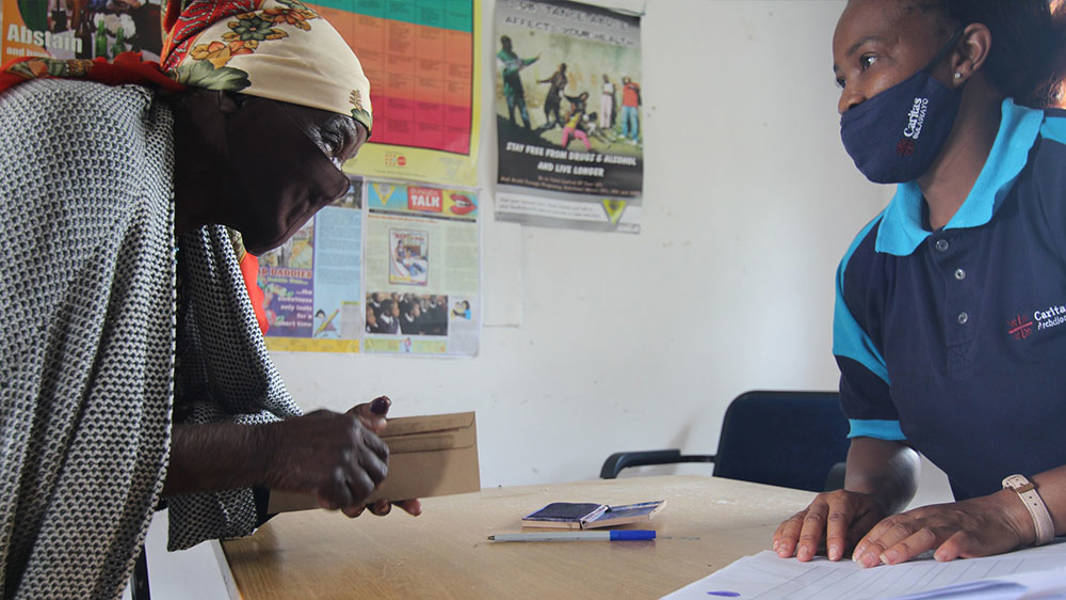
Direct cash assistance helps people in Rwanda’s Gakenke district plan for successful futures
“It was a very difficult situation after the floods. It added to the emotional toll brought by the Covid-19 pandemic on my life,” said Immaculee Ntamahungiro, whom the floods left homeless and without means of support.
To help people get back on their feet and build toward stronger futures, Ireland-based nonprofit Trócaire worked to provide relief to residents with aid in the most direct form possible: through cash transfers to individuals.
The direct payments allowed Ntamahungiro to invest in her future by buying a piglet and planting vegetables like beans, tomatoes, and cabbage in her garden that she will harvest both to eat and to take to market.
The cash transfers took place via mobile phone, offering a COVID-safe means of disbursal. Households selected to participate received an average of 150,000 Rwandan Francs in two rounds, aimed primarily at addressing emergency food security needs. Trócaire collaborated in the effort with Duhamic Adri, a civil society group based in Rwanda’s capital, as well as local leaders.
The Stavros Niarchos Foundation (SNF) provided support for the Trócaire effort as part of the Foundation’s $100 million global COVID-19 relief initiative, which encompassed grants including cash transfers to households in Spain, Uganda, and the United States, among a wide range of other relief efforts. SNF supported Trócaire in reaching nearly 350 residents of the two Rwandan sectors involved, as well as in implementing a radio campaign to disseminate information about COVID-19 and health precautions in Ethiopia, Rwanda, and Zimbabwe.
Why direct cash transfers? Beyond the efficiency of the solution—no one knows what resources will best help you thrive better than you do—Trócaire explains a few of the many strengths of the strategy.
First, it recognizes and respects the dignity of individuals, which is especially important for people who have survived an emergency. Second, it can be conducted much more discretely and seamlessly than the distribution of physical goods, protecting the personal safety of recipients and avoiding lengthy journeys to collection points, including for people with disabilities. Third, it avoids disrupting markets where they are functioning effectively, which could seed long-term vulnerability.
This strategy proved effective for Samuel Semanza, an informal worker whose job opportunities dried up as the pandemic took hold. For him and his family, the cash transfer proved transformative in a lasting way.
“I used part of the cash to buy a machine used for processing cassava leaves, which brings me 2000 Rwandan Francs a day,” Semanza said. “I believe I will be able to feed my family without waiting for handouts again.”
